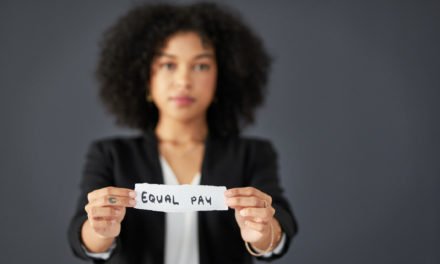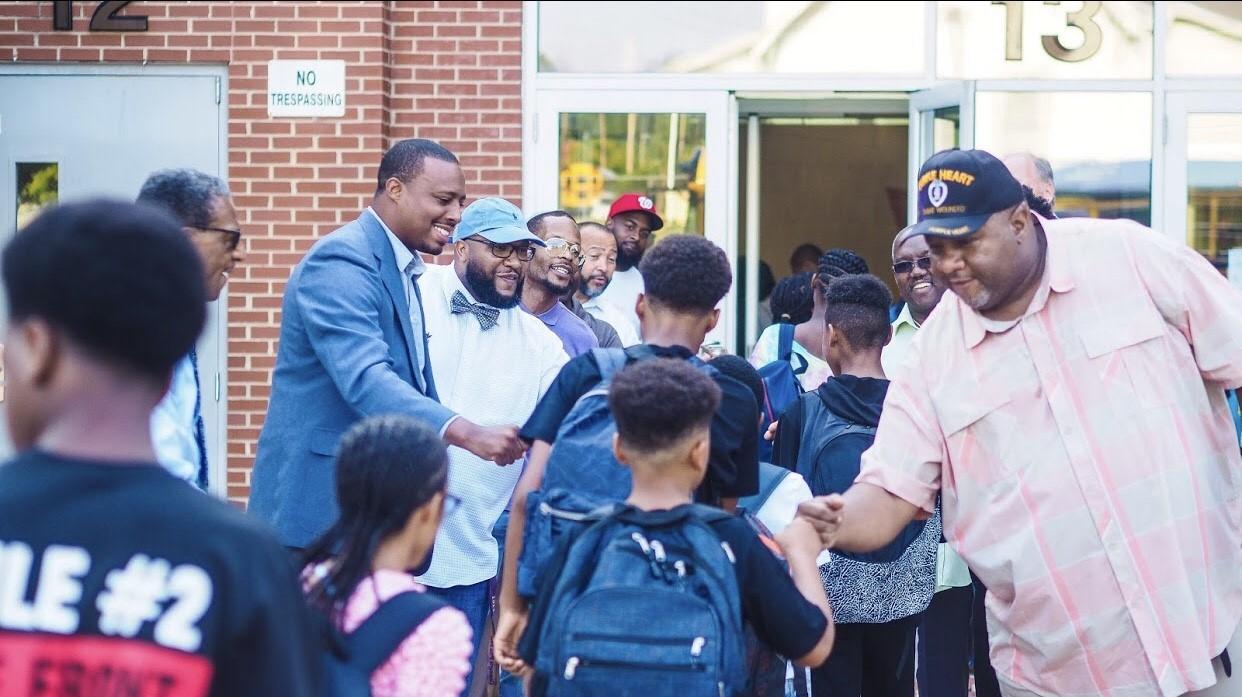
“To whom much is given, much is required.”
This is a biblical reference that my father often time used to communicate the responsibility my brother and I must own as a result of the privileges, access, and generational progress we experience. Put simply: with greater access and more power comes greater responsibility, accountability, and expectation. Though biblical, this quote can be applied in different contexts — from parenting to leadership and, as it relates to this post, the field of policing.
I was listening to a podcast a few weeks back where a former police chief shared candidly that law enforcement is one of few professions where one is given “a constitution authority to make a split-second decision as to whether somebody lives or dies [and take another person’s freedom].” This seems like a no-brainer — but hearing those words struck a chord with me. Though law enforcement officers experience this tremendous amount of responsibility, they are also among the most protected from processes and actions that support accountability and facilitate justice for those they harm.
Though law enforcement officers experience tremendous amount of responsibility, they are also among the most protected from processes and actions that support accountability and facilitate justice for those they harm. Click To TweetI feel compelled to candidly share that as I write this post I am frustrated. Today is September 23, 2020, and a few hours ago, I learned that one of the three Louisville, KY, police officers who were involved in the murder of Breonna Taylor was charged, not with murder, not for ending Breonna’s life, but with first-degree wanton endangerment. More specifically, Sgt. Jonathan Mattingly was indicted for shots he fired into a neighboring apartment. Essentially, the officer is being charged for the risk he posed to white people, not the life he stole from Breonna Taylor, a Black woman.
Sgt. Jonathan Mattingly is being charged for the risk he posed to white people, not the life he stole from Breonna Taylor, a Black woman. Click To TweetWhen you juxtapose the corporate “outrage” and responses to the murder of George Floyd with the turn of events involving the Breonna Taylor case, I believe it says a lot about what appeals to America’s whiteness’ moral compass, and the devaluation of Black women’s lives. Whiteness is only moved by Black death that is visible and that it can see — just like it is more likely moved to disrupt “far right” overt forms of white supremacy and racism that compromises its interpretation of its own goodness, while turning a blind eye to the everyday, subtle, [yet blatant] forms that persist in our institutions.
Whiteness is only moved by Black death that is visible and that it can see. Click To TweetShe was used for everything. Used to promote everything. Used to make people look good and socially conscious. Used to promote parties. Used for memes. Used as an example. Used and used and used. And even with all of this, she didn’t get the one thing she needed. Justice.
— BLACK FEMALE LEAD (@ThisBeLi) September 23, 2020
I am so over this system.
It is time for leaders and organizations who espouse justice, equity, and inclusion to move beyond their passive, performative forms of “allyship” and advocacy. And not because there is a “business case” or because it impacts the bottom line — but because “humanity.” Moving beyond the boardroom to disrupt police brutality looks less like displaying Breonna Taylor on the front cover of a magazine, or affirming that “Black Lives Matter” on products or event spaces, and more like putting corporate dollars behind policy measures that support police accountability and ultimately divestment. Note: This post is not intended to argue alternatives to policing — Leigh Morrison wrote about this in an earlier post. I do intend to offer perspective on how and why organizations and leaders should leverage their power to disrupt current policy.
Moving beyond the boardroom to disrupt police brutality looks less like displaying Breonna Taylor on the front cover of a magazine, and more like putting corporate dollars behind policy measures that support police accountability… Click To TweetIn states like Maryland, my home state, it is nearly impossible to fire a police officer because of legislation like the MD Law Enforcement Officers’ Bill of Rights (LEOBOR). LEOBOR guarantees specific rights for police officers (and in some states correctional officers) who are being investigated for misconduct. It has been broadly referred to as one of the biggest obstructions to police accountability, specifically in the fifteen states that have adopted this legislation. It offers protections to officers that are not afforded to other public servants and government employees.
Law Enforcement Officers’ Bill of Rights (LEOBOR) guarantees specific rights for police officers. It offers protections to officers that are not afforded to other public servants and government employees. Click To TweetAccording to The Marshall Project:
LEOBOR assures police officers treatment that they themselves do not consistently offer to suspects they are questioning.
Here is a sample of the common provisions in these measures, which vary from state to state:
- If a department decides to pursue a complaint against an officer, the department must notify the officer and his union.
- The officer must be informed of the complainants, and their testimony against him, before he is questioned.
- During questioning, investigators may not harass, threaten, or promise rewards to the officer, as interrogators not infrequently do to civilian suspects.
- Bathroom breaks are assured during questioning.
- In Maryland, the officer may appeal his case to a “hearing board,” whose decision is binding, before a final decision has been made by his superiors about his discipline. The hearing board consists of three of the suspected offender’s fellow officers.
- In some jurisdictions, the officer may not be disciplined if more than a certain number of days (often 100) have passed since his alleged misconduct, which limits the time for investigation.
- Even if the officer is suspended, the department must continue to pay salary and benefits, as well as the cost of the officer’s attorney. (Source: The Marshall Project)
Even for states who do not have their own version of LEOBOR, police union contracts can also be a barrier to police accountability. According to an analysis by Campaign Zero, more than 85% of police contracts in major cities around the country include language limiting oversight or discipline of officers.
For example:
- Disqualifying misconduct complaints that are submitted too many days after an incident occurs or if an investigation takes too long to complete
- Preventing police officers from being interrogated immediately after being involved in an incident or otherwise restricting how, when, or where they can be interrogated
- Giving officers access to information that civilians do not get prior to being interrogated
- Requiring cities to pay costs related to police misconduct including by giving officers paid leave while under investigation, paying legal fees, and/or the cost of settlements
- Preventing information on past misconduct investigations from being recorded or retained in an officer’s personnel file
- Limiting disciplinary consequences for officers or limiting the capacity of civilian oversight structures and/or the media to hold police accountable. (Source: Campaign Zero)
A 2019 report by legal scholar and professor, Stephen Rushin, showed that more than two thirds of police union contracts forced police departments to go through an appeals process when they wanted to fire or discipline officers, placing the final decisions in the hands of arbitrators “selected, in part, by the local police union or the aggrieved officer.”
These measures and similar disciplinary procedures are often negotiated in the contract bargaining process. Additionally, police unions hold political and financial power. According to a CNN IRS tax filing analysis, police unions have grown in financial power over the years. The total assets of 56 large city police unions jumped by almost a third between 2011 and 2017. Often, union contracts are approved by local politicians who have been financially supported by police unions. It is worth noting that many of these well-funded police unions tend to actively oppose criminal justice reform, particularly those aimed at discipline and use of force. Also, unlike other labor unions, police unions are largely centered around white, conservative values.
Many of these well-funded police unions tend to actively oppose criminal justice reform, particularly those aimed at discipline and use of force. Unlike other labor unions, police unions are largely centered around white,… Click To TweetHere is how organizations and leaders who are truly invested in disrupting police brutality and pursuing justice with policy can use their power:
- Use your corporate lobbying dollars and power to support policy and legislators that prioritize police accountability. For example, in Maryland, State Senator Jill P. Carter has been working to repeal the MD LEOBOR.
- Cancel contracts with local police departments, especially those who institute polices and processes that stifle accountability, transparency, and civilian oversight. This means you should be querying into local legislation and union agreements that may dictate these measures.
- Financially support local organizations that are calling for alternatives to policing, police accountability, civilian oversight and the demilitarization of police.
- Publicly condemn the use of force (e.g. teargassing, rubber bullets, armored vehicles) directed towards protestors, and measures that have been introduced to criminalize protest. Just this week Florida introduced legislation that does just this. If you are headquartered or have offices, employees, or customers in Florida, you should be speaking out against this!
- Destigmatize talking about politics in the workplace. Corporate America RUNS politics—the workplace is clearly the best place to advocate for and share your position on policy that centers equity and justice. Put your policy where your hashtags and statements are.
In closing, I also want to offer some nuance and perspective that I am acutely aware of, largely because of my intimate relationships with Black police officers and my own personal experiences navigating white institutions.
Inasmuch as the aforementioned policies are inherently racist (e.g. they lead to outcomes that disproportionately impact Black people, communities), there are Black officers (who want to “be the change”) who exist within the racist institution of policing and choose complicity in these policies as a form of protection and survival from the white supremacist cultures they work within. Put differently, these policies that protect police officers from being held accountable for taking Black life, also protect the Black officers who must deal with and work under racist leaders and toxic, oppressive work cultures. These same policies that hurt the collective, simultaneously protect individual interest, safety, livelihood. There is a lot to unpack there that I won’t explore in this post, but I think it is worth acknowledging. I get it…
…and… “The master’s tools will never dismantle the master’s house.” –Audre Lorde.


















